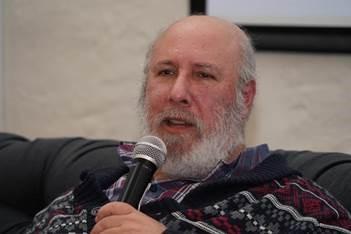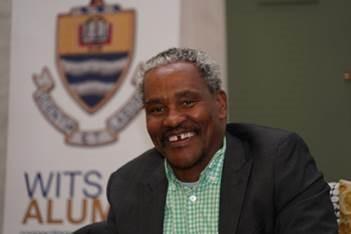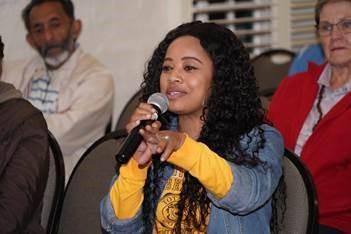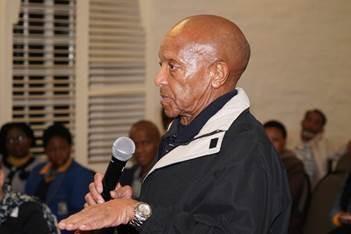Making sense of election noise
-
Professor Ivor Sarakinsky supplied a welcome note of humour at an elections-themed alumni networking event on 11 April 2019 when he quoted Groucho Marx’s definition of politics: “the art of looking for trouble, finding it everywhere, diagnosing it incorrectly and applying the wrong remedies”.

The Wits School of Governance professor was in conversation with Lumkile Mondi of the Wits School of Economic and Business Sciences at the Wits Club. Professor Anthoni van Nieuwkerk, also of the Wits School of Governance, was the facilitator. All three are regular public commentators on the South African political and economic landscape.
The discussion provided some well-informed views of the upcoming national election and what kinds of challenges would remain or emerge afterwards.
Alumni and guests used question time to raise issues such as the prospect of coalitions, representation of the youth, and the difference between rural and urban voters.
“There’s lots of noise [from political parties] and little attempt to persuade voters through evidence,” said Sarakinsky. “This is not a bad thing.” He said election noise was a useful way of ventilating people’s emotions and showing those in office what people were thinking and feeling. A calm pre-election mood would be a problem, he said. South Africa should be proud of the Independent Electoral Commission, he added; the country’s election processes are robust enough to deal with issues after the results are out, unlike countries where faulty processes are often blamed and violence follows. In South Africa, the result is incontestable.
Sarakinsky estimated what support the main parties might achieve in the 8 May election and suggested some of the reasons for and possible consequences of this showing.

Mondi retraced developments in the political scene from about 2007, when South Africa’s economy was growing at over 5% a year, benefiting from global cycles and local policies. It then entered a phase during which the state and state-owned enterprises were “hollowed out”, he said. This “radical economic transformation” was really a form of accumulation, Mondi said, and the money accumulated left the country instead of circulating in the South African economy. Corruption is now institutionalised, a normal part of doing business or getting a service, he said. When institutions are ruined, how can redress be achieved? Only organised business appeared to be fighting back. “We’re all on a wing and a prayer, hoping it comes right,” Mondi said, adding that he was disappointed with the silence on corruption from those who speak out about other issues such as decolonisation.



